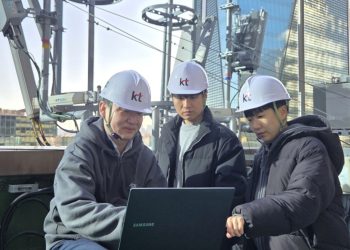Samsung Electronics Co. has temporarily shut down its semiconductor plant operations in Austin, Texas. Amid the heavy Texas winter storms, electricity provider Austin Energy has shut off power to the city’s most prominent industrial users. As the record-breaking Texas winter temperature continues, Samsung Electronics promptly suspends chip production to aid in reducing the strain on Austin’s electricity grid.
“With prior notice, appropriate measures have safely been taken for the facilities and wafers in production,” said Michele Glaze, a Samsung spokesperson. “We will resume production as soon as power is restored. We are discussing timing with the proper authorities.” According to Glaze, Samsung gradually stopped its manufacturing process after receiving the order from Austin Energy.
Through the notice, Samsung Electronics was able to take safety measures to minimize damages to thousands of silicon wafers. Authorities remain uncertain when the power supply would be back to normal. Based on US reports, the freezing Texas winter temperatures caused power outages that left around 200,000 Austin households without electricity.
In the Austin plants, Samsung manufactures processors such as DRAMs, NANDs, and smartphone SoCs, providing for customers, including Intel. Due to the increasing demand from its American customers, the South Korean chipmaker plans to conduct a 38.7 trillion won (USD 1.7 billion)-expansion for the Austin chip facilities. The two Samsung semiconductor plants in Austin constitute around 28% of the company’s overall production capacity. Following the power shutdown, Samsung and other chip manufacturers could experience considerable production losses, damages, and supply disruptions. In 2018, a 30-minute power interruption caused damages to thousands of wafers at a Samsung facility in South Korea.
Global Semiconductor Shortage
Aside from Samsung Electronics, some of the affected large-scale business facilities include NXP Semiconductors and Infineon Semiconductors. Moreover, analysts say that the Texas chip production suspensions could negatively impact the global semiconductor shortage. “The worldwide chip supply is already very constrained, and what Samsung is encountering in Austin would add fuel on the fire for the short term,” said Liu Pei-Chen, a Taiwan Institute of Economic Research analyst.
However, Liu stated that Asia houses most of the world’s semiconductor-manufacturing capacity, with Samsung producing 10% and Taiwan producing 70%. As the shortage continues, worldwide smartphone, automotive, and other electronic production has slowed and is struggling with boosting low outputs.







